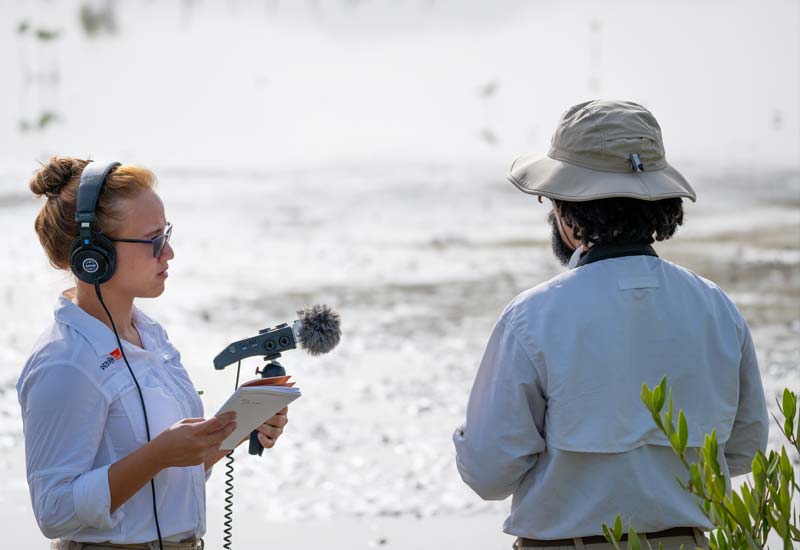What is bee swarming? When do sea turtles lay their eggs and when do migratory birds visit us? When does the rain season begin? Why does seaweed arrive at our coastlines? These are some of the issues discussed in Ecotono, a new program produced by Para la Naturaleza for Radio Universidad de Puerto Rico.
Ecotono is broadcast every Tuesday at 3:30 PM since July 2. In this new space in the airwaves, Deborah A. Rodríguez Díaz, the organization’s Content Creator, welcomes each week environmental interpreters and collaborators that share their experiences in nature with the public.
The program is an invitation to curiously observe the natural world and focuses on the mutual care relations in our environment, while also sharing everyday facts about ecology and the natural phenomena that affect Puerto Rico. In terms of its format, Ecotono combines interviews with interpreters, narrative elements, and sounds captured on the field. Rodríguez Díaz shares with listeners the interpretation experience that Para la Naturaleza offers in their guided tours and offers them the opportunity of connecting to the sounds of nature while learning more about it.
“The word ‘ecotono’ (in English, ecotone) refers to the transition zone between two or more ecosystems. Ecotones are very important spaces because in them there’s quite a special interaction of organisms that are adapted to live in specific ecosystems, but when they meet, they not only share a space but also their experiences. This applies to all species — including human beings. Through Ecotono we want to achieve that special interaction between nature and human beings,” stated Fernando Lloveras San Miguel, President of Para la Naturaleza.
You may listen to Ecotono by tuning Radio Universidad de Puerto Rico on 89.7 FM, through www.wrtu.pr or by searching the station on the TuneIn Radio mobile app. All programs are available on-demand at https://www.mixcloud.com/radioupr/playlists/ecotono/.

